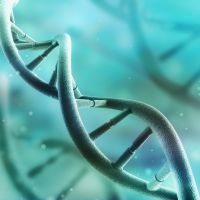LOSS OF SLEEP HAS A COST GENETIC
Supplements to aid sleep

Previous studies reported that the metabolism is negatively affected by the loss of sleep, and that sleep loss is linked to an increased risk of obesity and type 2 diabetes.
Jonathan Cedernaes, University of Uppsala (Sweden), and colleagues studied 15 healthy men of normal weight, that on two separate occasions were submitted to the laboratory for 2 night stays. During the second night, the participants slept as usual (over 8 hours), while in the other session were kept awake. To minimize the influence of various environmental factors, lighting conditions, food intake and activity levels of the laboratory they were strictly controlled. Small tissue samples were collected from superficial fat on the stomach and the muscle on the thigh - two types of tissues that are important for the regulation of metabolism and to control the levels of blood sugar. Blood samples were taken before and after the participants had consumed a sugar solution to test their sensitivity to insulin, a practice commonly implemented to exclude the presence of diabetes or a metabolic state called reduced insulin sensitivity, that may precede type 2 diabetes.
The molecular analysis of tissue samples collected has shown that the regulation and activity of genes was changed after one night of sleep loss. The activity of genes is regulated by a mechanism called epigenetics. This involves chemical changes to the DNA molecule, for example at the methyl groups - a process called methylation - that regulate how genes are activated or deactivated.
The researchers found that the genes undergo changes after the loss of sleep and say: "Our results show that even one night waking can alter the epigenetic profile and basic transcriptional gene in key metabolic tissues."
Source: Worldhealth
Supplements to aid sleep
